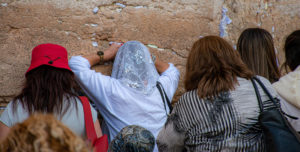The Aguna Problem – Recent Developments

Haim Shapira is Professor of Law at Bar-Ilan University (Israel)
In a recent case in the UK, a Jewish woman was able to obtain a get (bill of religious divorce) from her husband by launching a private prosecution against him for controlling or coercive behavior. This has been described as a landmark case in the struggle of Jewish women to obtain religious divorces from uncooperative husbands. In this short post I explain the problem of aguna (“chained” wife), review recent developments in this area, and explain why this last case is truly groundbreaking. (more…)


